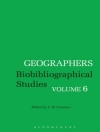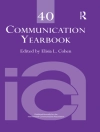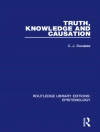From the Olympics to the World Cup, mega sporting events are a source of enjoyment for tens of thousands of people, but can also be a source of intense debate and controversy. This insightful new Handbook addresses a number of central questions, including: How are host cities selected and under what economic conditions? How are these events organized, and how is local resistance overcome? Based on historical and empirical experience, what are the pitfalls for the organizers of these events? What are the potential economic benefits, including any international image effects? How can the costs be minimized and the benefits maximized for host cities and countries? How do these mega events impact the challenges of globalization and what is their environmental legacy? Compiled and edited by two internationally renowned sports economists, the expert contributions elaborate on the specific mechanisms of the bid processes, analyze the determining factors of winning bids, and illustrate how to construct future bid campaigns. Underpinned by case studies from four continents and by theoretical considerations, the reasons for seemingly systemic cost overruns are explored and analyzed, as are the effects on national and regional employment and income, property values, non-traditional economic variables (such as psychological and marketing benefits) and urban branding and transformation. The Handbook also reflects on important elements of design of the games in order to better plan, prepare and allocate resources – including, for example, sustainability issues and the use of campaigns to secure positive perceptions. This book provides an up-to-date analysis of the financing and economic impact of mega sporting events, as well as a full discussion of how host cities can maximize the benefits from their experience. As such, it will prove a fascinating read for academics, students, researchers and policy makers with an interest in economics and public sector economics generally, and more specifically, in the economics of sport. Contributors: G.M. Ahlfeldt, G. Andranovich, W. Andreff, R.A. Baade, O. Bass, R. Baumann, U. Bob, D. Brown, M.J. Burbank, R. Burton, A. Cartwright, A. Ceballos, D.M. Chin, D. Coates, L.M. de Melo, S. du Plessis, N. Eber, B. Engelhardt, A. Feddersen, R. Flores, D. Forrest, Y. Guo, C.H. Heying, Y. Hou, B.R. Humphreys, G. Kavetsos, S. Kesenne, R.H. Koning, J.G. Long, W. Maennig, B. Majumdar, V.A. Matheson, I.G. Mc Hale, N. Mehta, N. O’Reilly, M. Olschlager, P.K. Porter, A.R. Sanderson, I. Sanz, J. Schokkaert, B. Seguin, S. Shmanske, E. Sterken, B. Sussmuth, K. Swart, J.F.M. Swinnen, S. Szymanski, J.D. Tena, R. Tomlinson, H. van Egteren, T. Vandemoortele, C. Zhou, A. Zimbalist
Wolfgang Maennig & Andrew Zimbalist
International Handbook on the Economics of Mega Sporting Events [PDF ebook]
International Handbook on the Economics of Mega Sporting Events [PDF ebook]
Beli ebook ini dan dapatkan 1 lagi GRATIS!
Bahasa Inggris ● Format PDF ● ISBN 9780857930279 ● Editor Wolfgang Maennig & Andrew Zimbalist ● Penerbit Edward Elgar Publishing Ltd ● Diterbitkan 2012 ● Diunduh 3 kali ● Mata uang EUR ● ID 8046718 ● Perlindungan salinan Adobe DRM
Membutuhkan pembaca ebook yang mampu DRM












